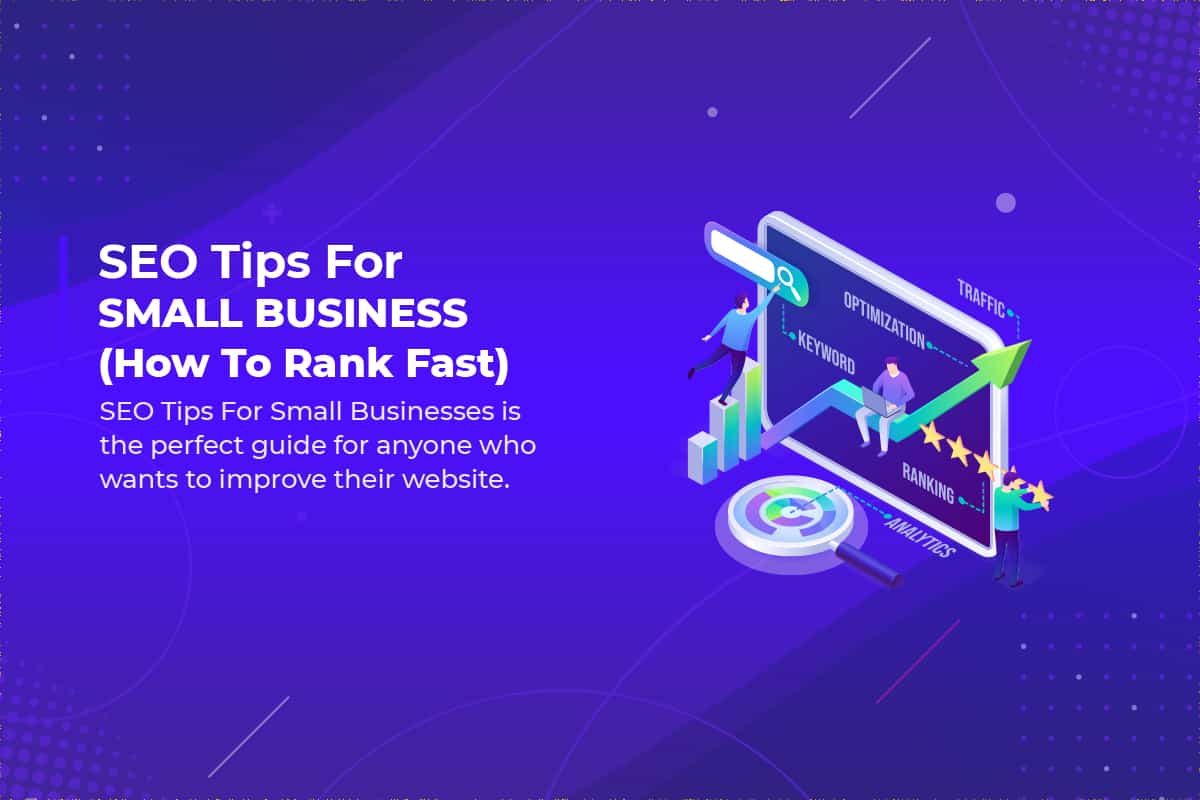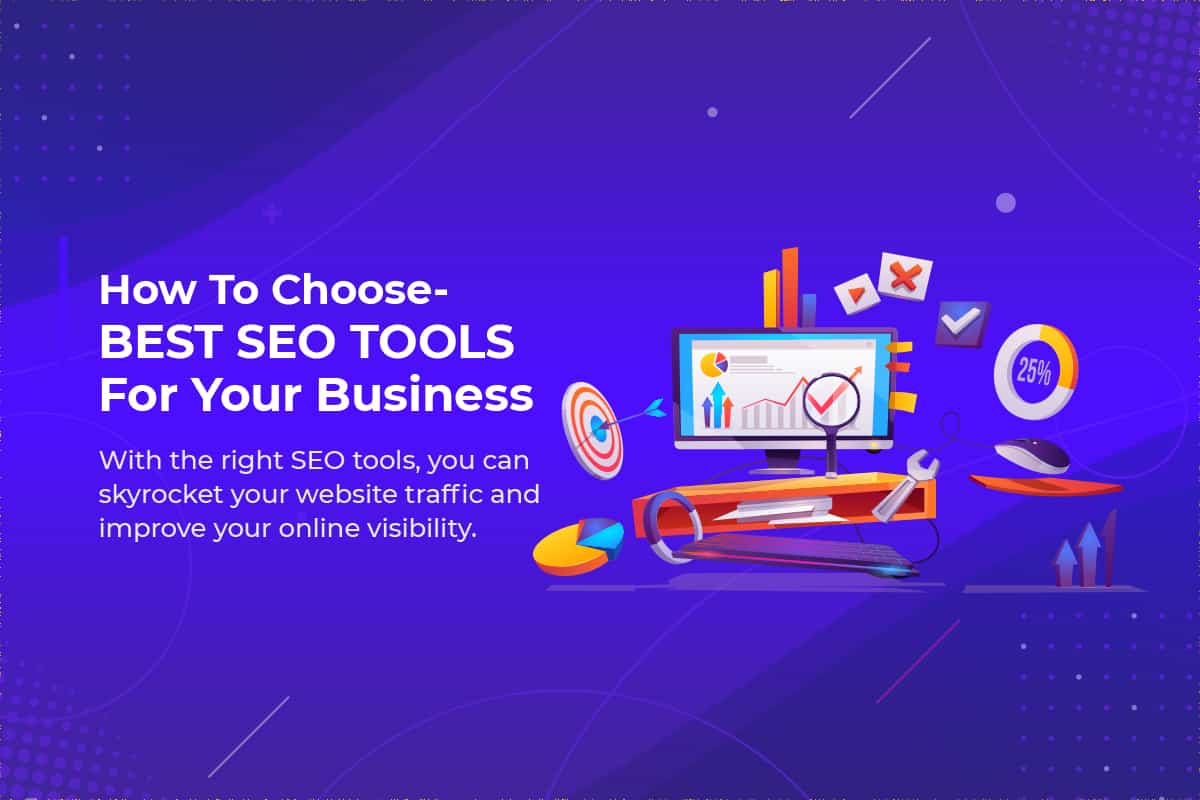Are you looking for ways to improve your website and get more traffic?
SEO tips for small businesses are the perfect guide for anyone who wants to improve their website. It’s packed with SEO tip and SEO tricks to help you rank higher on Google and increase your website traffic.
You’ll learn :
- How to optimize your website for search engines?
- How to create high-quality content? and
- How to get more back-links.
You’ll also learn to use social media to promote your website and attract more visitors.
This guide is perfect for small business owners who want to learn how to improve their small business websites and get more traffic from Google.
It’s packed with tips and tricks to help you rank higher on Google and increase your website traffic.
As a small business owner, if you own a small business website and want to boost your ranking or sell more products or services, you need to focus on SEO.
What are the best SEO tips for small businesses?
Here are the best SEO tips for small businesses.
1. Find the upward search trends
Find the upward search trends before you can start optimizing your website for Google; you need to understand which keywords people are searching for. You can use keyword research tools like Google AdWords Keyword Planner and Google Trends to find out.
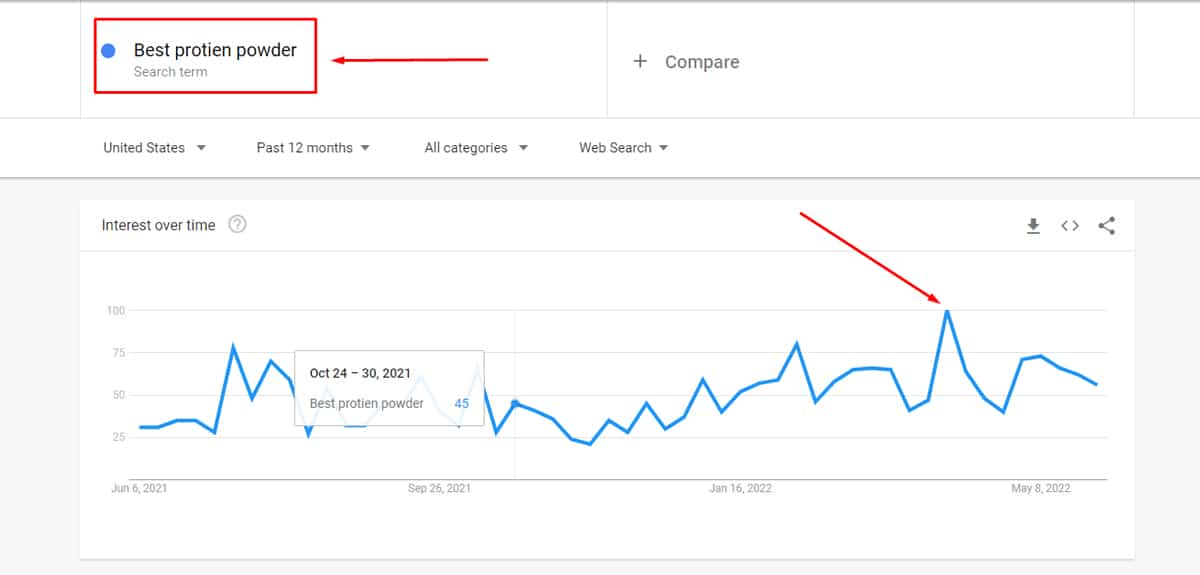
Once you know which popular keywords, start using them in your website content. Use them in your titles, in your meta descriptions, and throughout your articles.
Make sure you’re using the keyword throughout your website to sound natural. Stuffing your keyword into your content will make it sound awkward and turn off your readers.
Google AdWords Keyword Planner and Google Trends are great tools to help you find popular keywords.
2. Plan your content strategy based on search intent
People use Google to search for all sorts of things. Some people are looking to buy something, some are looking for information, and some are looking for entertainment.
If you want your website to rank well, you need to create content that matches the search intent of the people who are searching for your keyword.
If you’re not sure what search intent is, think about why someone would be searching for your keyword. Are they looking to buy something, or are they just looking for information?
You can use the best SEO tools to find the search intent of a particular keyword and create search engine friendly content for your small business.
But before you should also know how to choose the best SEO tools for your blog or website growth.

Here we have used the SEMrush tool to show you what is search intent and how you can select a particular option to find the best high volume and low competition keywords for your small business.
Creating content that matches your audience’s search intent will help you rank higher on Google and get more traffic to your website.
People use Google to search for all sorts of things. Some people are looking to buy something, some are looking for information, some are looking for entertainment, and some want to search google for things they want to purchase.
3. Find a high search volume and less difficult keywords
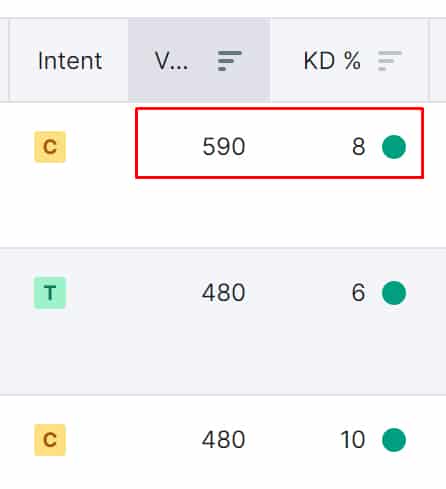
One of the most important factors for ranking in Google is the search volume of your keyword. The higher the search volume, the more traffic you’ll get to your website.
But you don’t want to focus on high-traffic keywords. You also want to focus on less difficult keywords to rank for.
There are a lot of factors that go into keyword difficulty, but one of the most important is the number of other websites that are already ranking for that keyword.
If you can find a high search volume keyword that doesn’t have a lot of competition, you’ll be able to rank higher on Google and get more traffic to your website.
Use keyword research tools like Google AdWords Keyword Planner and Google Trends to find high search volume keywords less difficult to rank for.
4. Produce more than one content on one keyword
SEO is a long-term game, and one of the best ways to ensure continued success is to produce multiple pieces of content on one target keyword.
This shows Google that your website is an authority on that subject, and it also helps to attract more organic traffic from searchers looking for information on that topic.
If you want to get the most out of your small business SEO strategy, start by producing multiple pieces of content on one target keyword.
Not only that producing more content your product or service can be visible to various search queries on Google.
This will also help you attract more organic traffic and ensure continued success in the long term.
5. Use the best SEO software for flawless content creation
If you want to get ahead in the search engine optimization SEO game, you need to use the best SEO software. There are many different options out there, but not all of them are created equal. It would help if you found software that will help you create flawless content.
The best SEO software will be user-friendly and help you create error-free content. It should also help you optimize your content for search engines, and this will help you get the most traffic possible to your website.
Make sure that you take the time to find the best SEO software for your needs. This is an essential part of your small business SEO strategy. By using the best software, you can create content that will help you get the success you are looking for.
6. Build backlinks to boost your content
One way to improve your small business’s SEO is by building backlinks. This means getting other websites to link to your website. This can be done by guest blogging, creating infographics, or being active on social media.
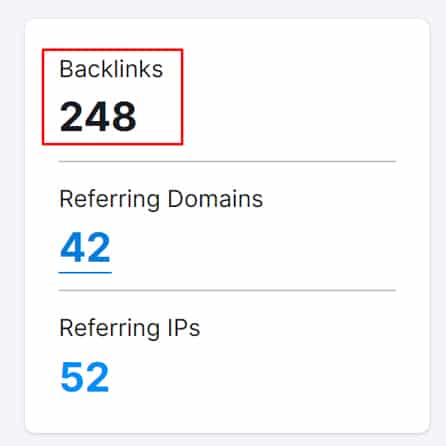
Building backlinks will improve your SEO, but it will also help increase traffic to your website. This is because when other people link to your website, it helps to increase its visibility in search engines.
Building backlinks can be time-consuming, but it is worth the effort to get better results from your small business SEO strategy.
Link building is important for small businesses because it helps to improve their SEO. By getting other websites to link to your website, you can increase your visibility in search engines and get more traffic to your site. While it can be time-consuming, building backlinks is a worthwhile effort for any small business looking to improve its SEO.
7. Optimize your content for search engines
If you want your content to be visible in search engine results, you need to optimize it for search engines. This means including relevant keywords throughout your content and making sure your website and content are accessible to search engines.
Including relevant keywords in your content helps search engines understand what your content is about, making it more likely to appear in search results. However, stuffing your content with too many keywords can hurt your chances of ranking in search results, so it’s essential to find a balance.
Making sure your website is accessible to search engines is also critical for SEO. This means ensuring that all of your website’s pages can be found and crawled by search engines. If any pages cannot be found or blocked from being crawled, they will not be included in search results.
8. Connect with your competitors for content collaboration
If you want to get ahead in the SEO game and take your business website to the top of Google, it’s time to start thinking about content collaboration. Working with your competitors may seem counterintuitive, but it can be a great way to get ahead.
Here’s why:
For one, you can pool your resources and create something truly unique and unforgettable. When you have multiple people working on a project, there’s a greater chance that something extraordinary will come out of it.
Additionally, collaborating with your competitors shows that you’re willing to work together for the greater good. This can help build trust and goodwill, which are important in any business relationship.
Finally, content collaboration can help you to reach a wider audience. By working with other businesses in your industry, you can tap into their networks and get a whole new group of potential customers.
So, if you’re looking to take your small business SEO to the next level, start thinking about content collaboration. It’s a great way to get ahead of the competition and reach a whole new group of people.
9. List your products and services to local business directories
One way to improve your small business’ visibility online is to list your products and services in local business directories. By doing this, you can improve your chances of being found by potential customers searching for what you offer and improve the best practices of local SEO.
In addition to listing your business in directories, be sure to include keywords that describe your business and what you offer. This will help potential customers find you more quickly when searching online.
You can improve your small business’s visibility and attract more potential customers by taking these steps.
Google my business listing is one way to make your small business more visible online.
Another way to do this is by listing products and services in local search directories.
When customers search for businesses like yours, they will be able to find you more easily.
Include keywords that describe your business and what you offer.
You can improve your small business’s visibility and attract more potential customers by taking these steps.
Listing products and services in local directories is a great way to improve your business’s visibility online and attract more customers.
Looking to improve your small business’ SEO? Check out our blog post on
10. Use images in content to get user attention
Images are a powerful tool that can help to draw user attention and improve the user experience on your website or blog. In addition, using images can also help to improve your search engine ranking.
When adding images to your content, be sure to include keywords relevant to your topic. This will help ensure that your content is found by users searching for information on the web.
Use the image ‘alt tag’ for each image you add to your content. This will help users who cannot see the image, and it will also help improve your search engine ranking.
11. Add video content to your website to boost the ranking
A page with video is 50 times more likely to rank on the first page of Google search results than a page without video.
If you’re not using video on your website, you’re missing out on a significant opportunity to improve your search engine ranking.
Here are three tips to get started:
First, make sure that your videos are hosted on a page with a high page rank.
Second, use keywords in your video titles and descriptions to help improve your ranking.
Third, take video sitemaps to ensure that search engines index your videos properly.
You can quickly improve your website’s search engine ranking by adding video content by following these tips.
12. Monitor your progress with Google SEO tools
Monitor your progress with Google SEO tools to ensure your website receives the organic traffic it deserves.
Google’s Search Console and Google Analytics tools are essential for small business owners looking to improve their ranking. By tracking your website’s progress, you can make the necessary changes to make your site visible to potential customers.
Make sure to check your progress regularly and take advantage of Google’s resources to improve your website’s ranking. You can boost your traffic and attract new customers with a little effort.
13. Check the most searched terms in Google Search Console
This is a helpful tip for small businesses that want to improve their SEO. You can check what terms people are searching for in Google Search Console and then use those terms on your website and in your content to help improve your ranking.
It’s a good idea to target long-tail keywords which are specific and tend to be less competitive than more general terms. For example, if you sell handmade jewelry, you could target the keyword “handmade jewelry for small wrists” instead of just “handmade jewelry.”
If you’re not sure how to use Google Search Console, plenty of tutorials online can help you get started. Once you start using this tool, you’ll see which keywords are bringing people to your website, and then you can focus your efforts on those terms.
14. Create mobile friendly content
Creating mobile-friendly content is vital for small businesses. By creating mobile-friendly content, you can improve your website’s SEO and reach a wider audience.
Here are some tips for creating mobile friendly content:
- Use short, concise sentences.
- Use easy-to-read fonts.
- Use images and videos to break up the text.
- Optimize your website for mobile devices.
15. Website structure
Website structure is essential for SEO and easy navigation for website visitors. A well-structured website will have SEO-friendly URLs, title tags, meta descriptions, and easy-to-follow navigation. For small businesses, it is essential to have a website that is SEO friendly and easy to navigate. Having a well-structured website will help you rank higher in search engines and give your website visitors a good experience.
16. Site speed
Site speed is essential for several reasons.
First, faster loading of pages improves the user experience. Secondly, site speed is a ranking factor for Google and other search engines. Finally, quicker page loading can improve conversion rates.
There are a few things you can do to improve your site speed:
- Make sure your site is well-coded and free of errors.
- Use caching and other optimization techniques.
- Use a content delivery network (CDN) to improve loading times for visitors from different geographical locations.
SEO Tips For Small Business : FAQs
Does SEO work for small businesses?
It would help if you also considered using social media and other marketing channels to promote your website.
If you are patient and willing to put in the work, SEO can be a great way to increase traffic to your website and improve your business’s visibility online.
Is SEO worth it for small businesses?
That being said, a well-executed SEO strategy can help small businesses in several ways. Perhaps most importantly, it can help them attract more website visitors from organic search. And, as we all know, more website traffic can lead to more customers and sales.
SEO can also help small businesses to build their brand awareness and credibility.
When potential customers see that a small business is ranking for relevant keywords, they’ll be more likely to view the company as a credible source of information or products.
Finally, SEO can help small businesses to save money on advertising.
Organic search traffic is complimentary, while paid advertising can be expensive. Investing in SEO can help small businesses to get more bang for their buck when it comes to marketing and advertising.
How much does SEO cost per month?
It’s important to remember that SEO is an ongoing process, so that the cost may continue for several months or even years.
The cost of not investing in SEO can be even higher.
With a solid SEO strategy, your website may rank well in search engines, losing potential customers and revenue. So, weighing the potential costs and benefits is essential before deciding whether to invest in SEO for your small business.
Can you do SEO yourself?
Many small businesses hire a professional or agency to handle their SEO efforts. This allows them to focus on running their business while leaving the technical aspects of SEO in the hands adversely; some small companies may have the time and resources to take on their SEO. If this is the case, it’s essential to do proper research and stay up-to-date with changes in search algorithms and best practices. Investing in tools and training to support your DIY SEO efforts can also be helpful.
Ultimately, whether you choose to do SEO yourself or hire a professional is up to your unique business needs and situation. Both options have the potential to be successful as long as proper time and effort are put into the process.
Conclusion:
Implementing the right SEO tactics can help small businesses rank higher in search engine results pages, increasing web traffic and generating more leads. By following our tips, you can optimize your website for Google and start seeing improved results. Have you tried any of these techniques to improve your SEO? What other methods have worked well for you? Let us know in the comments!
